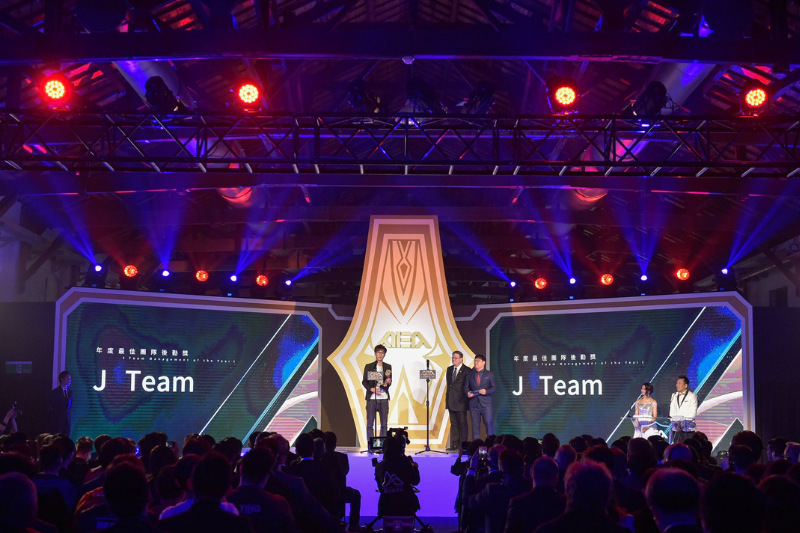With the rise of digital technology, Asian esports revenue reached US$543.8 million in 2020. Several APAC countries are now planning to grow their esports industry, and global investing firms are consequently reviewing the market’s economic potential.
As the competitive esports industry continues to grow globally, the public and investors worldwide are now all paying attention to its economic value on the digital market. The Asian esports business has been playing the dominant role in the popularisation of professional gaming culture, and several APAC countries besides the original gaming giants- Korea and China- are now beginning to expand their influences in the sector through active measures and investments on related infrastructure.
Esports, short for electronic sports, refers to tournaments where individual players or teams compete against each other by playing video games at a professional level. The esports industry has significantly expanded as large corporations began to organise events and sponsored associated athletes and/or teams. By the 2010s, esports became a major sector in the video game industry, changing public perception on professional video gaming through its revenues and media influence.
Professional Esports
There are some who may still underestimate the market value of esports, refusing to compare the industry’s economic potential with that of other professional sports leagues like the NFL, NBA, and NHL. However, its current market size is already significant enough to prove that the business cannot be underrated.
League of Legends (LOL), one of the most popular video game franchises in the world, generated US$624 million in revenue in 2013. This occurred a year after the Tawainese professional team Taipei Assassins had won the 2012 LOL World Championship, which marked the beginning of the esports sensation at a global scale, as teams and fans from all over the world participated. LOL’s revenue reached US$1.75 billion in 2020, proving its ever-growing nature to the general public as well as stakeholders. It should be noted that LOL is only one game out of many that are involved in esports competitions.
Today, the esports industry involves a number of professions other than that of a gamer. Each team has their own coach, who gives feedback to players, analyses the opposition in a tournament, designs appropriate tactics for each game, and even manages the mentality of the players. There are also sports commentators, sports officials, PR specialists, and game analysts involved in every professional gaming competition, demonstrating the institute of the esports industry.

Esports in APAC
Asia in general has recently been the forerunner in esports. Although Korea and China are still the largest countries in the global market in terms of their investment and public interest, other APAC countries such as Hong Kong, Singapore, and Taiwan are now creating momentum in expanding their influence in the digital realm.
Hong Kong
Hong Kong is well known to be a cultural epicentre in Asia, and its influence in the Asian esports market aligns with this perception. Hong Kong has the largest esports stadium in Asia, held the world’s first-ever “Visioning Esports in Art” exhibition in 2020, and won a gold medal in the first demonstration esports event in the 2018 Asian Games.
The HKSAR government is in support of the development of esports in the city, considering the digital industry as a newly emerging sector with “high economic potential.” With the vision to expand the market, they set out four objectives: vitalise esports events, empower the game industry, nurture esports talents, and make esports a mainstream sport and build a positive public image.

Singapore
In May 2021, Singapore hosted the Free Fire World Series, which involved 18 teams from 10 regional series and reached a viewership of 5.4 million- the highest ever for any esports tournament besides the ones held in China. The event only marked the beginning of Singapore’s commitment to the growth of their esports industry as the city-state plans to host the first Asian edition of Gamescom.
The Singaporean government aims to expand its esports market by providing financial support to companies that are involved in developing related digital and physical infrastructures.
“The Government will continue to support companies as they push boundaries through experimenting with new and immersive content formats and business models, as well as level up the quality of our local talent to become leading creators of world class content,” said the Singapore Tourism Board and Enterprise Singapore.

Taiwan
Taiwan has made a significant contribution to the rapid expansion of the global esports industry in the early 2010s. The Taiwanese video game market in general generated over US$1.26 billion in 2016 and is expected to gain US$2.8 billion in 2021.
According to Niko Partners, global game giants are now looking for investment opportunities in the Taiwanese esports market as 65% of gamers in the country find esports as the most competitive form of sports in the island.

Related Articles
5 Key Trends Redefining the Future of Gaming





